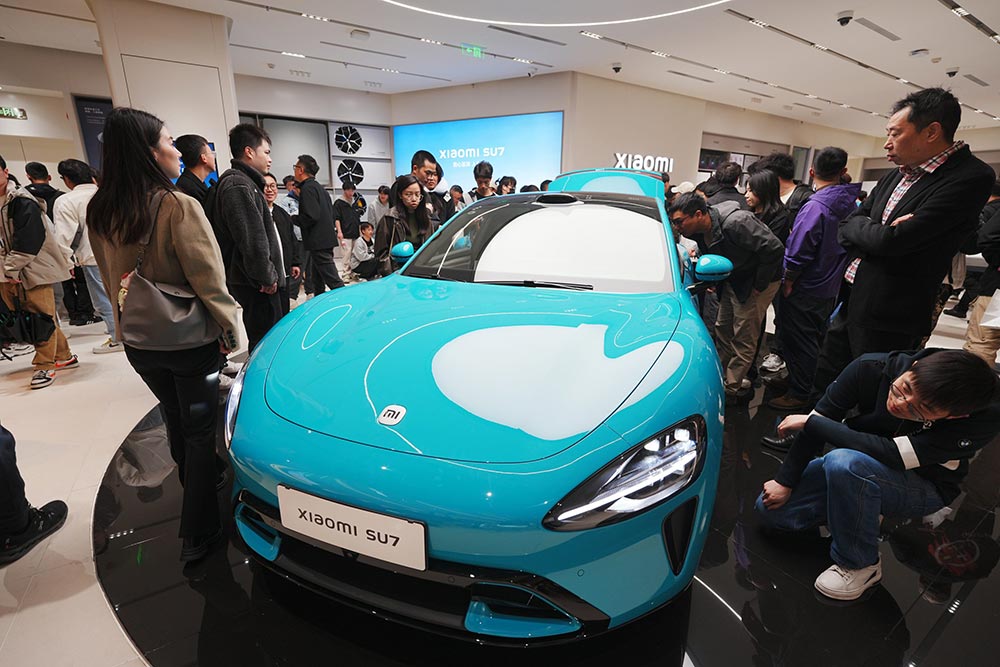Xiaomi’s ambitious venture into electric vehicles, investing ten times more capital than typical automakers allocate to a new model, appears to be paying off. The Chinese tech giant debuted its inaugural car, the SU7 electric sedan, in the market last Thursday, amassing 120,000 orders within just 36 hours.
Following the EV’s launch, Xiaomi’s shares surged by as much as 16% in Hong Kong trading on Tuesday, the first day after the debut. However, the gains were later moderated to a 9% increase by the market’s close, while the broader Hang Seng Index rose by 2.4% during the same period.
Despite its successful entry into the automotive sector, Xiaomi, as a newcomer to car manufacturing, may encounter challenges in meeting the high demand. Potential buyers are being informed that they might face a waiting period of four to seven months before receiving their vehicles.
The SU7 is available in three versions, with the standard model priced at 215,900 yuan ($29,842). The higher-end Pro and Max models are priced at 245,900 yuan ($33,989) and 299,900 yuan ($41,453), respectively.
Xiaomi founder Lei Jun asserted on Thursday that the SU7 surpasses the Tesla Model 3 in 90% of specifications. According to the company’s website, the Xiaomi car boasts a range of up to 700 kilometers, exceeding the Model 3’s 606 kilometers. Moreover, the SU7 is priced lower than the Model 3, which starts at 245,900 yuan ($33,989).
Despite being renowned as the world’s fourth-largest smartphone vendor, Xiaomi has expanded its portfolio to include smart TVs and home appliances such as vacuum cleaners, microwave ovens, and air fryers. Lei described Xiaomi’s EV initiative as his “final major entrepreneurial project” in 2021.
In a Weibo post on Monday, Lei mentioned that the SU7 was the outcome of “three years of diligent effort” and sought user feedback on the new vehicle.
Lei acknowledged last week that Xiaomi is currently selling its new car at a loss but expressed confidence in the company’s ability to withstand fierce competition in China’s EV sector over the next five years, given its substantial cash reserves. Automakers in China are embroiled in another round of price competition amid signs of slowing growth in the world’s largest EV market.



